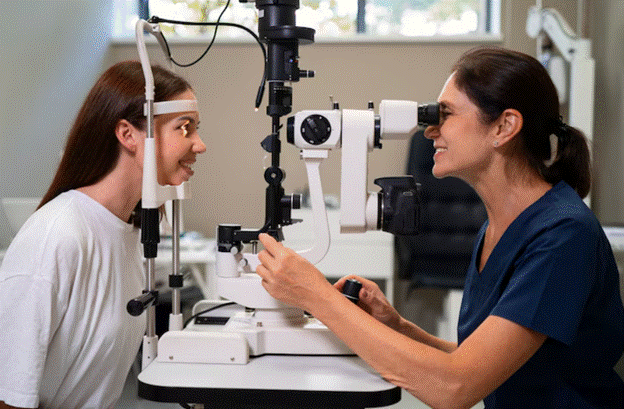Paraoptometrics are trained professionals who assist optometrists in providing comprehensive eye care services. Their responsibilities often include conducting preliminary vision tests, managing patient records, assisting with eye examinations, and educating patients about eye health. Depending on the workplace, paraoptometrics might also be involved in fitting contact lenses, maintaining diagnostic equipment, and handling billing and scheduling tasks.
The Certified Paraoptometric Practice Test: A Crucial Preparation Tool
Preparing for the CPO exam can be a daunting task, especially given the breadth of topics covered. This is where the certified paraoptometric practice test becomes invaluable.
The certified paraoptometric practice test simulates the actual exam experience, allowing candidates to familiarize themselves with the format, question types, and subject areas. It is not merely a tool for memorization but a comprehensive study aid that helps candidates identify their strengths and areas needing improvement.
Importance of the Certified Paraoptometric Practice Test
- Familiarization with Exam Format
The actual CPO exam includes questions on ocular anatomy, optical instruments, clinical procedures, office management, and patient communication. The practice test mirrors this diversity, helping candidates understand how questions are structured and what to expect on exam day.
- Self-Assessment and Targeted Study
By taking a certified paraoptometric practice test, candidates can pinpoint weak areas and focus their study efforts more efficiently. For example, if a candidate struggles with understanding optical instruments or specific clinical procedures, they can allocate extra study time to these topics.
- Building Test-Taking Confidence
Test anxiety is common, especially for certification exams that impact one’s career. Practicing under exam-like conditions reduces nervousness, builds familiarity with the timing and pressure of the real test, and improves overall confidence.
- Improving Time Management Skills
Although the CPO exam typically has a set time limit, managing time effectively during the exam is essential to answer all questions. The certified paraoptometric practice test provides a realistic setting to practice pacing and question prioritization.
- Reinforcing Knowledge Retention
Repeated practice solidifies understanding and retention of core concepts. This ensures that knowledge is accessible and applicable in real-world scenarios beyond the exam itself.
The Path to Certification: Why It Matters
Certification is a recognized credential that validates the knowledge and competencies of paraoptometrics. The Certified Paraoptometric (CPO) credential is offered by professional organizations such as the American Optometric Association’s Paraoptometric Section (now the Optometric Technicians Association).
Benefits of Becoming Certified
- Career Advancement: Certified paraoptometrics often have better job prospects, higher salaries, and opportunities for advancement.
- Professional Credibility: Certification distinguishes candidates in a competitive job market.
- Enhanced Knowledge: The preparation process ensures candidates are well-versed in the latest industry practices and patient care techniques.
- Improved Patient Care: Certification supports higher quality service, benefiting both patients and the overall practice.
The Evolving Role of Paraoptometrics in Modern Eye Care
As healthcare continues to integrate advanced technologies and patient-centered approaches, the paraoptometric role is expanding. Certified paraoptometrics are increasingly involved in specialized tasks such as advanced diagnostic testing, electronic health record management, and patient education on emerging treatments.
Accessibility and Availability of Certified Paraoptometric Practice Tests
Fortunately, a variety of resources are available for those preparing for the CPO exam. Many organizations offer certified paraoptometric practice test materials online, some free and others paid, catering to different learning styles and budgets.
Employers and professional associations often encourage or provide access to these resources, recognizing the long-term benefits of well-prepared staff.
Preparing for the CPO Exam: Best Practices
While the certified paraoptometric practice test is a cornerstone of exam preparation, it should be part of a broader study strategy.
Develop a Study Plan
Creating a structured timeline that balances study sessions, review, and practice tests helps avoid last-minute cramming and promotes steady progress.
Utilize Multiple Study Resources
Books, online courses, webinars, and study groups offer diverse perspectives and explanations that can deepen understanding.
Engage in Hands-On Experience
Whenever possible, gaining practical experience in an optometric setting reinforces theoretical knowledge and builds professional confidence.
Seek Support
Mentorship from certified paraoptometrics or instructors can provide invaluable guidance and motivation.
Conclusion: Making the Most of Your Certification Journey
Pursuing paraoptometric certification is a strategic investment in your professional future. The certified paraoptometric practice test is not just a preparatory step but a transformative tool that equips you with the knowledge, confidence, and skills needed to excel.
By embracing this resource and incorporating it into a well-rounded study approach, candidates position themselves for success on the exam and a rewarding career in the growing field of eye care.







